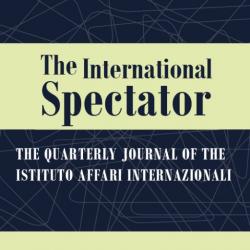No Longer Neutral? Shifts in Russian Policy towards Northeast Asia since 2014

Russia’s aim to build a role as a neutral, independent player in Northeast Asia (NEA) is now under threat as a result of its regional policy choices since the 2014 annexation of Crimea. Moscow’s evolving position in the region can arguably be better understood in the light of the dynamic of the Sino-Russian partnership. The decline of Russian capacities, its growing partnership with the People’s Republic of China (PRC) and NEA developments have exerted a unique impact on Moscow’s relations with regional stakeholders. As a result, Russia’s position as a neutral player in Northeast Asian security issues, including in the case of the Korean peninsula and China-Japan Senkaku/Diaoyu island dispute, is no longer tenable. Despite its weaker status, the declining power (Russia) has a specific strategic value to the rising power (PRC) in the short to medium term, thus requiring a more nuanced understanding of the behaviour and role of such powers in the international system.
Keywords: Russia; PRC; Northeast Asia; rising power
-
Dati bibliografici
The International Spectator, Vol. 59, No. 4, December 2024, p. 41-60 -
Numero
59/4 -
ISBN/ISSN/DOI:
10.1080/03932729.2024.2424745



